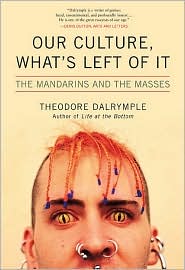Here is a question for readers. Just because NZ is small does that mean it has to be provincial? Having returned–and happily so–to NZ after a 3+ year absence, I am struck as to how insular public debates tend to be. Leave aside the grating RWC ads and hype. Although it makes much ado about a second tier sporting event, it is being hosted here and there is money to be made as well as sporting prestige on the line. So the hoopla could happen anywhere. I also understand the focus on Christchurch given the earthquakes, but am struck by how most attention is on the human dramas and not on the policy response and consequences of the disasters (which seem to this uninformed eye to be slow and not considerate of long-term implications). More broadly, be it in the tone of political debate, the focus of popular culture, or the economic preoccupations of the moment, it all seem a bit inbred to me. Am I just being precious or unduly judgmental?
I ask because I came back from Singapore, which is small but is incredibly cosmopolitan because of its strategic location and thriving expat culture (native Singaporeans are quite insular as well but have been forced to cope with the influx of more worldly people as part of their national transformation project). Switzerland, San Marino, Andorra, Monaco, Ireland and Malta are small but their location in Europe makes them acutely sensitive to and knowledgeable of their larger neighbour’s actions and interests. The same can be said for Uruguay, surrounded by larger States, or Central American republics, dwarfed by Mexico and the US. This is not to say that the masses as a whole in these countries are always on top of international affairs or erudite in their discussions of global trends, but that they seem to have a better appreciation of the world around them than what is evident in NZ. That seems counter-intuitive.
I say so because the tyranny of distance should have been overcome by advances in telecommunications and transportation, NZ is increasingly a nation of immigrants, including many from non-traditional source countries, its commercial ties are more varied and distant than in earlier generations, its has high standards of literacy and access to news sources, it has a good percentage of citizens returning from OE’s and its diplomatic connections reflect all of these trends. So why is it that, if I am correct, NZ remains rooted in a seemingly mythical short-and-gumboots, rugby-fixated mentality unconcerned about the larger world in which it is inserted? After all, unlike like large states that can “afford” to be ignorant of world affairs because of their economic weight and territorial size (e.g., the US), Kiwis are constantly told that their well-being is directly linked to NZ’s position in the international community. If that is true I would expect that average Kiwis would take an interest in global issues and ask questions of national elites about them.
Why, for example, has the NZ government made no public pronouncements on Syria (and muted comments about Libya) given its purported commitment to human rights? Why has issues like human trafficking, child labour and environmental degradation not entered into the debate about undertaking trade agreements with Asian despotic states? Why have tensions between Fiji and Tonga only been awarded two days of media attention, especially given the role of other powers behind the scenes and NZ’s connections to both countries? Why is there no debate about the NZDF role in Afghanistan given the beginning of the US military withdrawal in July? Why is it assumed that “privatisation” and public expenditure reductions are sacrosanct when in many faster developing parts of the world that are also commodity export-dependent (Latin America, SE Asia) such market-driven zealotry has been abandoned in favour of more judicious public management schemes that see public welfare and employment as requisite part of the social contract (and long-term stability)? Why is draconian anti-terrorist legislation and expansion of domestic intelligence powers passed when NZ security elites admit that the threat of a terrorist event is extremely low and that domestic threats are more likely to be criminal than political in nature (with some of that criminality being a direct result of NZ’s permissive attitude towards trade conditions and regulatory requirements on foreign investment and corporate accountability). Why are national leaders allowed to dismiss those who raise such concerns as extremists or unhinged?
In fact, what the heck happened to policy debates in general? Why is it that when not rugby the entire country seems to be fixated on human dramas and political sleaze rather than the pressing issues that impact they very way society is organised?
I realise that NZ may not be alone in this syndrome, should it in fact be real. It just strikes me as incongruous that a country with such an abundance of human capital should be so inward-focused, especially if it’s material, social and political status is directly connected to, and dependent upon, its ties to the outside world. Provincialism may serve the interests of elites who can govern and do business without considered scrutiny so long as a few popular sops are thrown the public’s way, but it seems to me to be an unfortunate comment on national consciousness if indeed it is a reality rather than a figment of my imagination.

